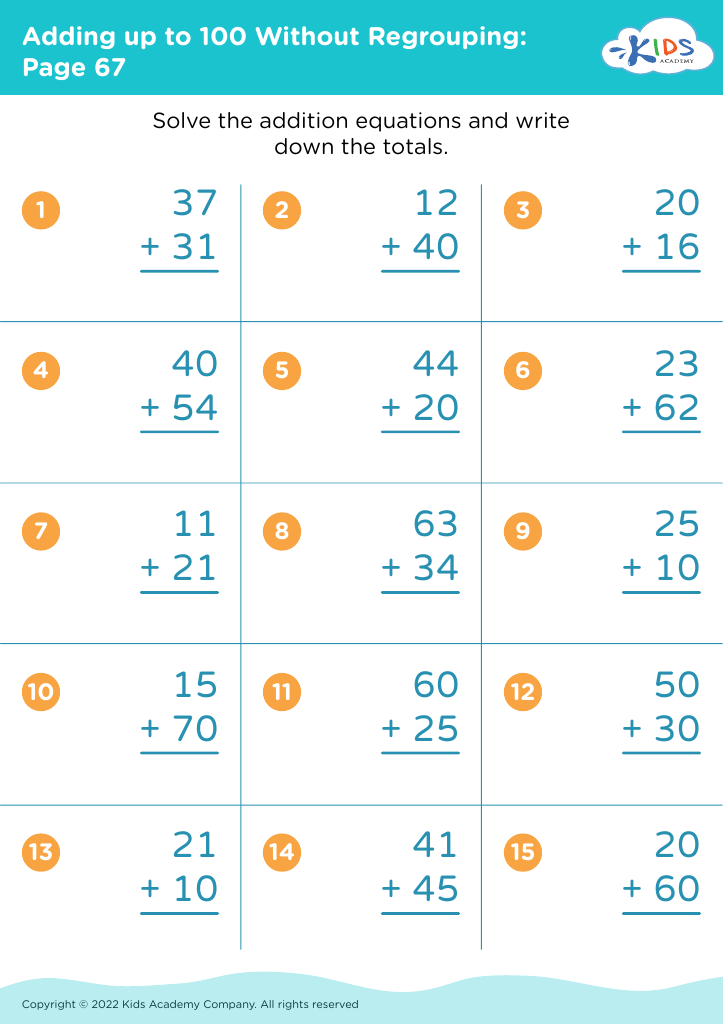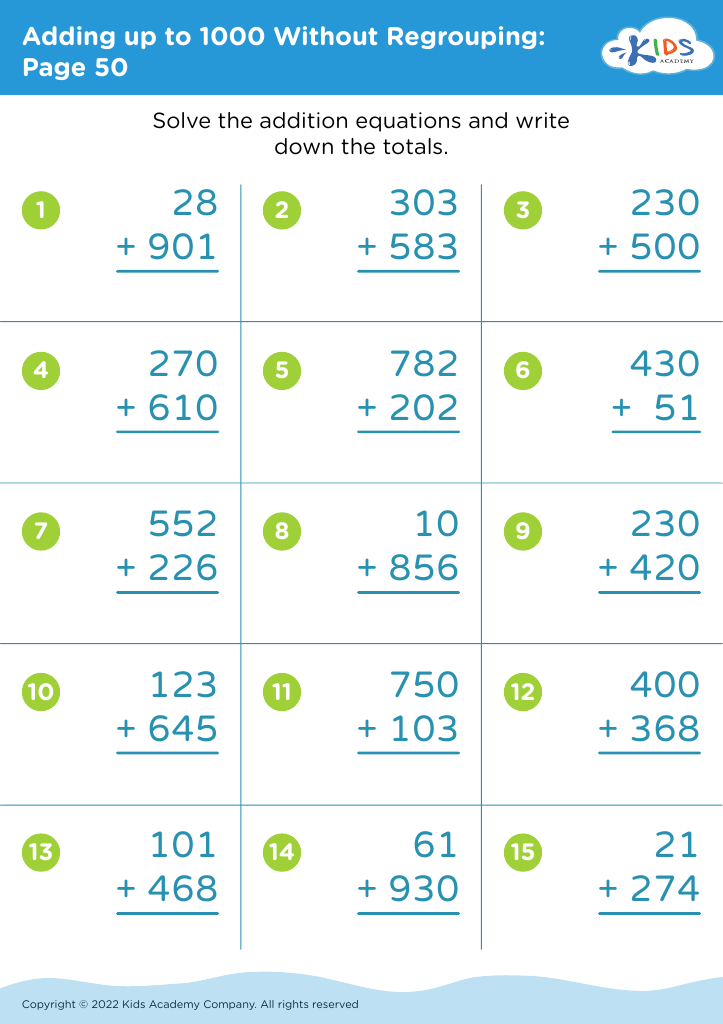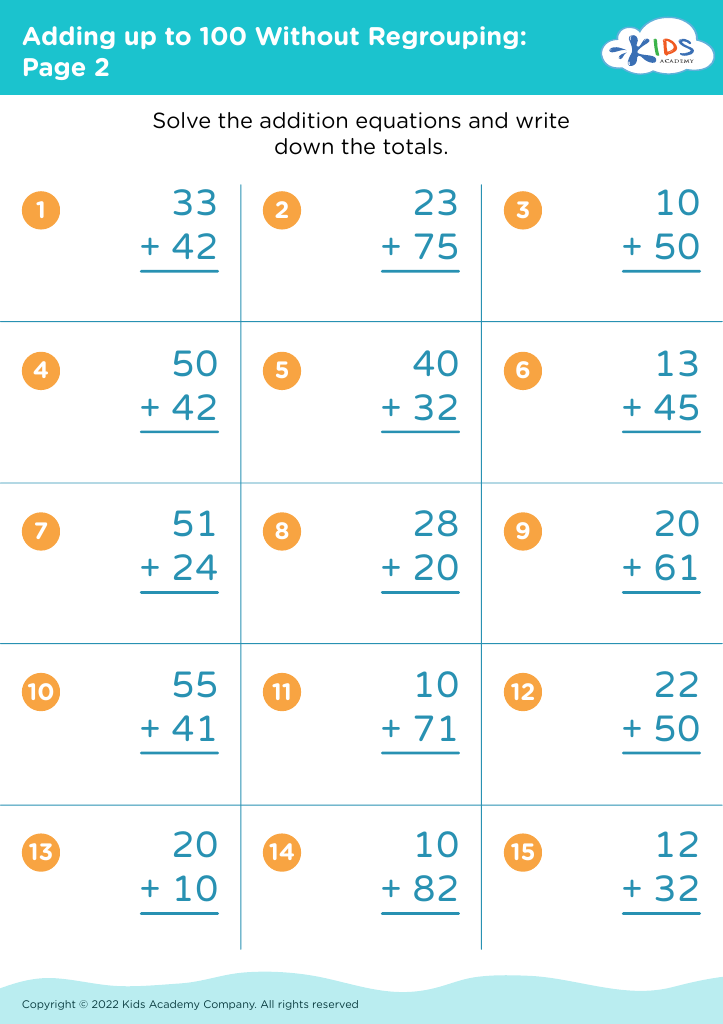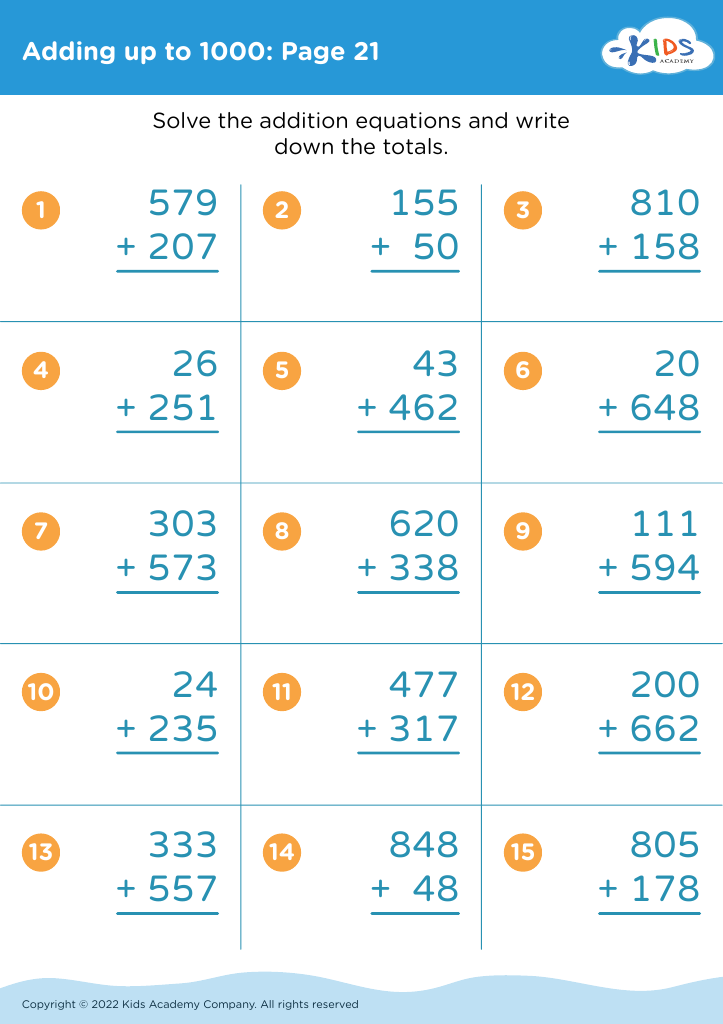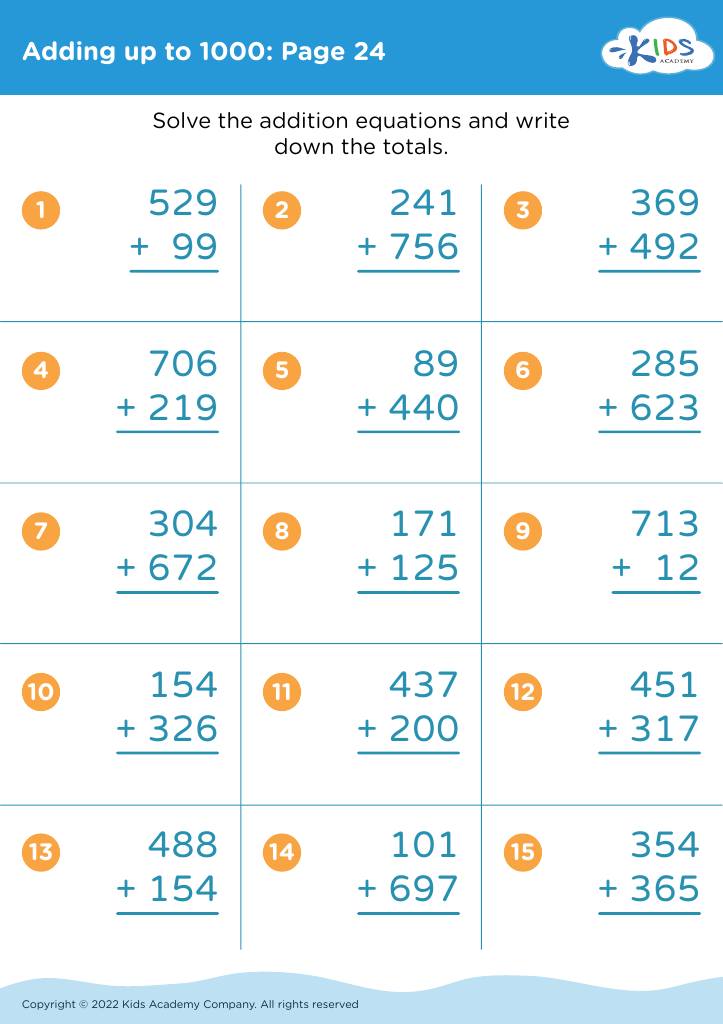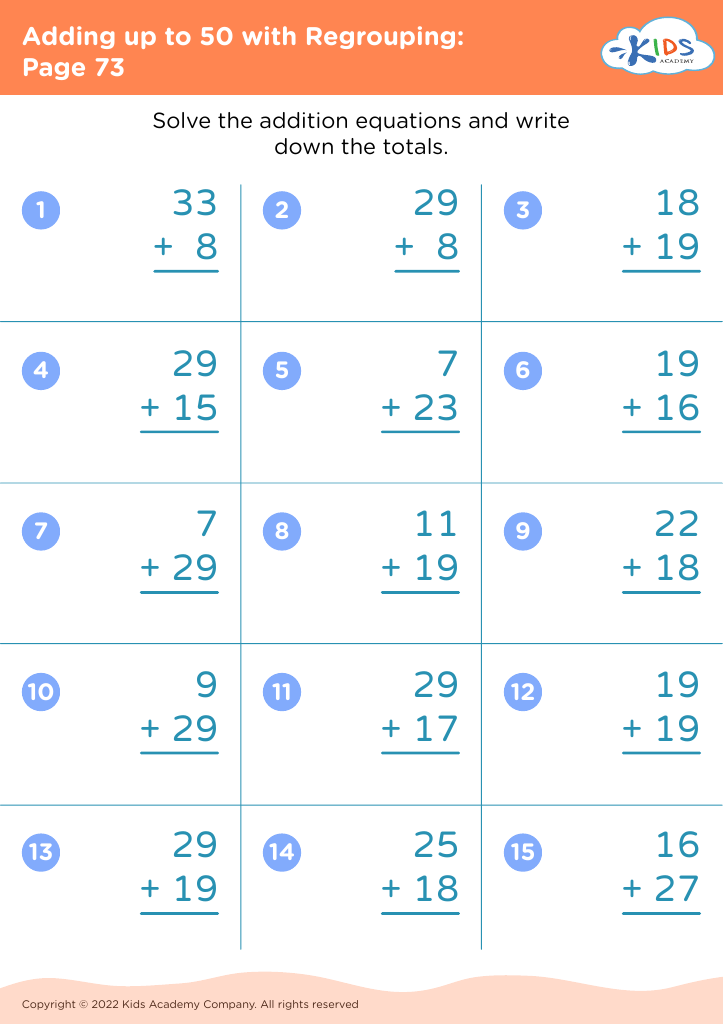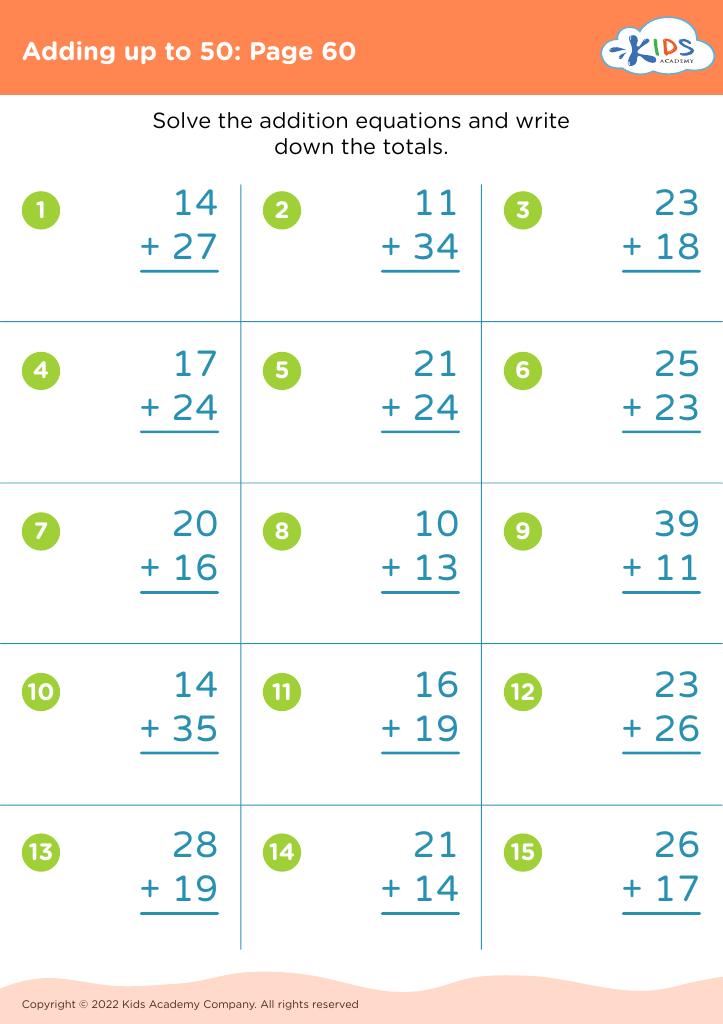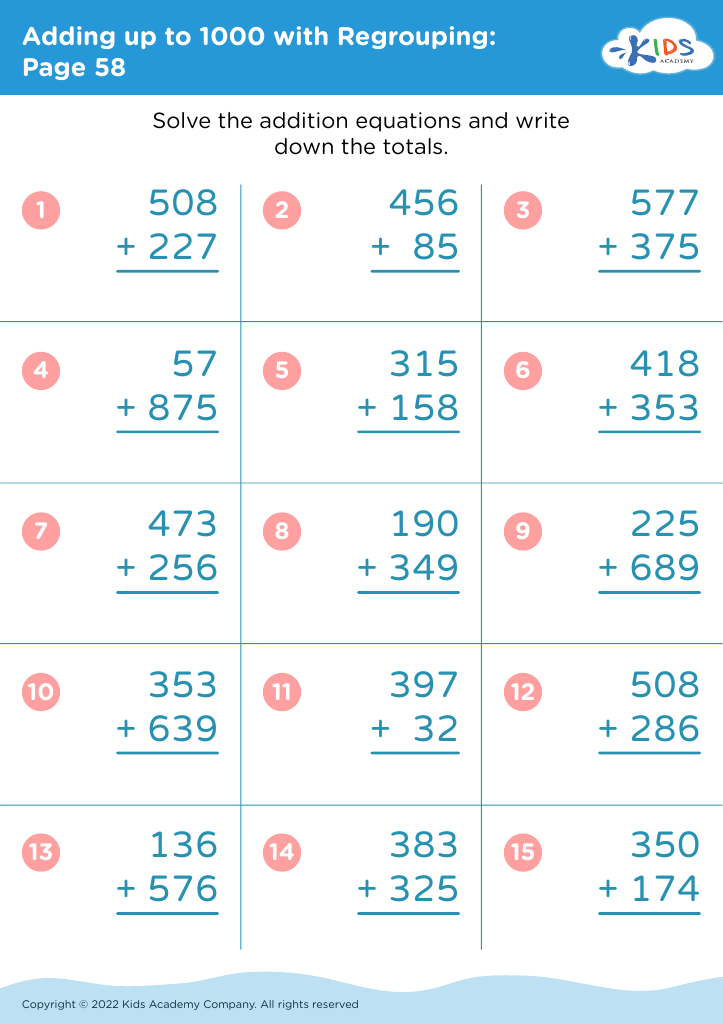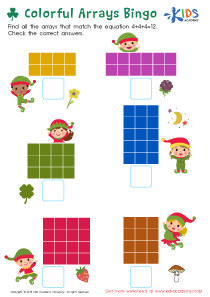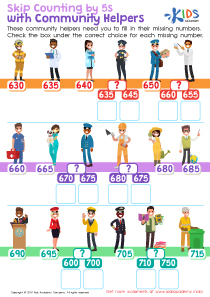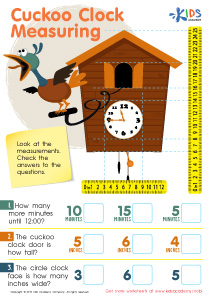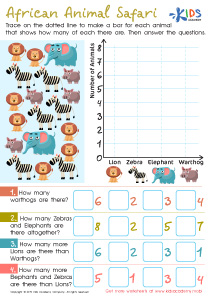Fine Motor Skills Grade 2 Addition & Subtraction Worksheets
37 filtered results
-
From - To
Enhance your Grade 2 students' fine motor skills with our engaging addition and subtraction worksheets! Designed to combine math practice with hands-on activities, these worksheets encourage children to develop coordination through tracing, coloring, and cutting exercises. Our curriculum-aligned materials not only boost arithmetic proficiency but also foster essential fine motor development, ensuring students build the skills they need for more complex tasks ahead. Each worksheet is crafted to make learning enjoyable, providing a comprehensive way to reinforce math concepts while honing dexterity. Explore our interactive and fun resources today to support your classroom's learning environment!
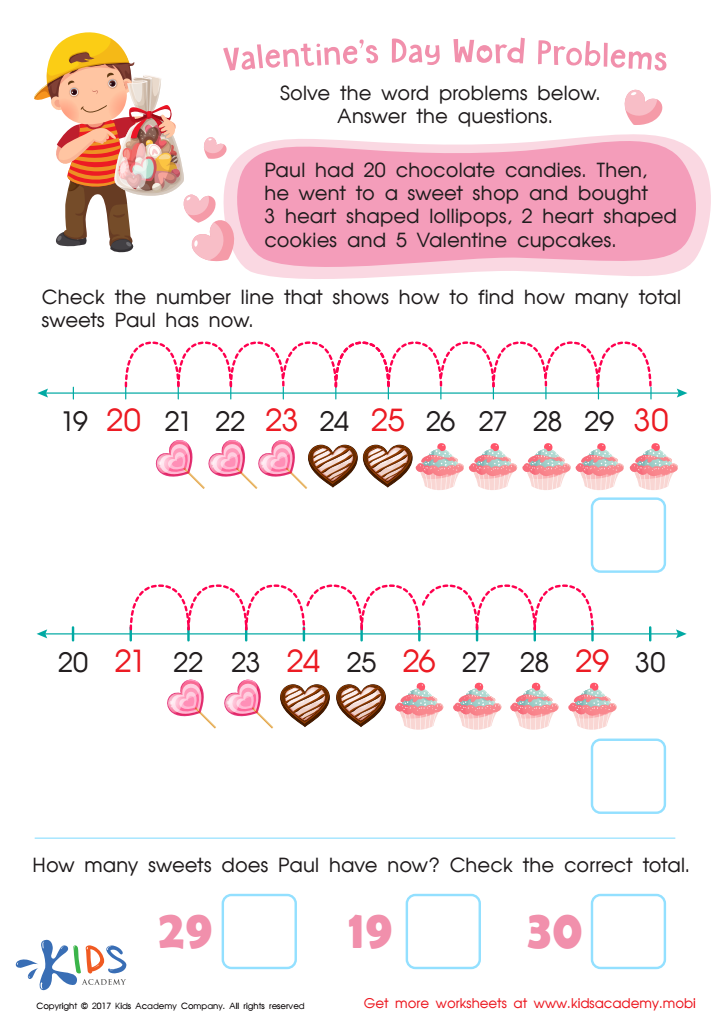

Valentines Day 2 Printable
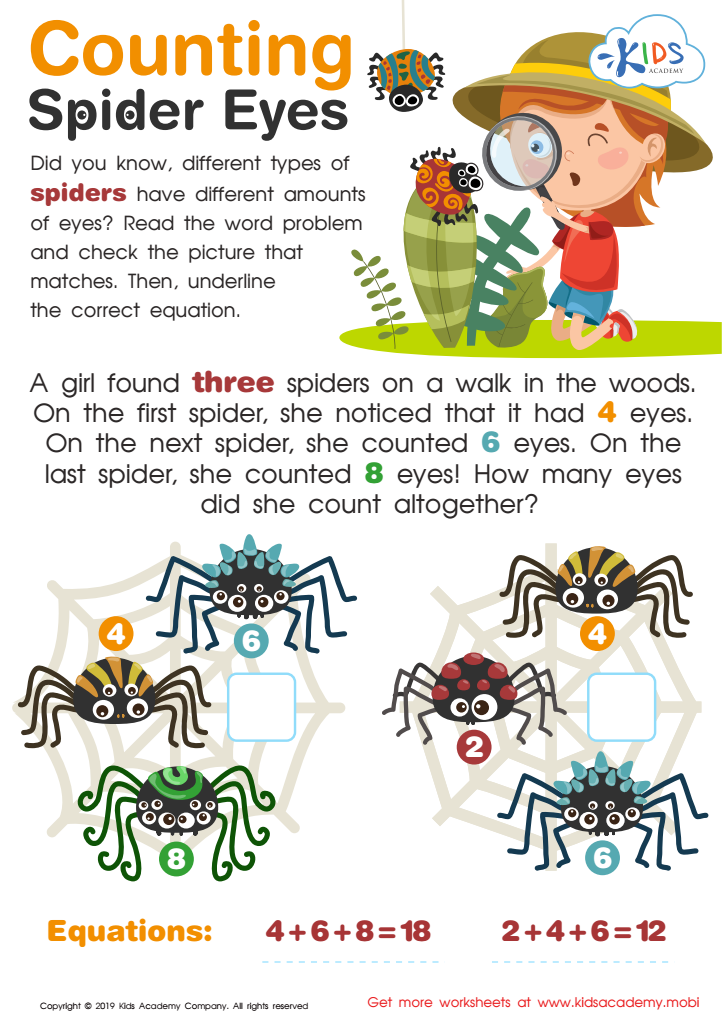

Counting Spider Eyes Worksheet


Counting Seedlings Worksheet
Parents and teachers should care about fine motor skills in the context of Grade 2 addition and subtraction for several compelling reasons. Fine motor skills involve the use of small muscles in the hands and fingers, which are critical for writing, constructing numbers, and manipulating objects. In Grade 2, children are not only developing their mathematical understanding but also enhancing their ability to express that understanding through writing and drawing.
Improved fine motor skills support children in efficiently writing numbers, numbers in word problems, and organizing their work, leading to increased confidence and accuracy in their calculations. When children struggle with fine motor skills, they may feel frustration, which can ultimately hinder their overall engagement with math. Moreover, the process of physically writing or drawing can reinforce learning, helping children internalize mathematical concepts.
Additionally, fostering fine motor skills positively impacts a child's overall academic performance and social development. Activities that promote these skills—like crafts, puzzles, or games involving small objects—can enhance hand-eye coordination, focus, and patience. Supporting children in developing fine motor skills not only prepares them for math success but also equips them with essential life skills for their overall growth and development.
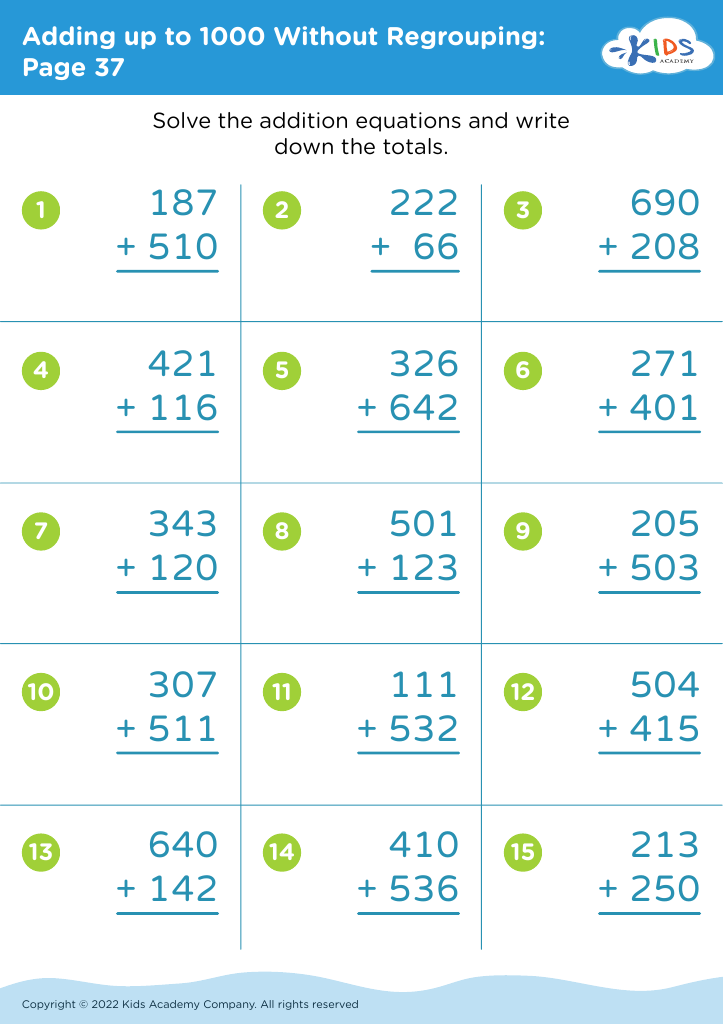


 Assign to My Students
Assign to My Students
